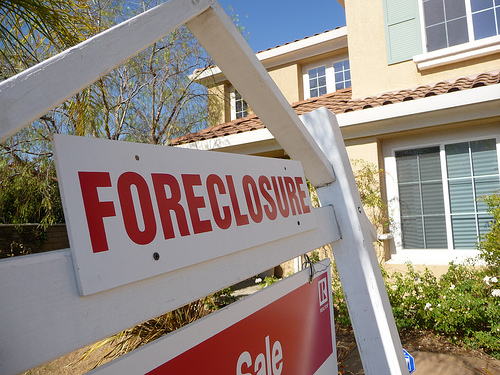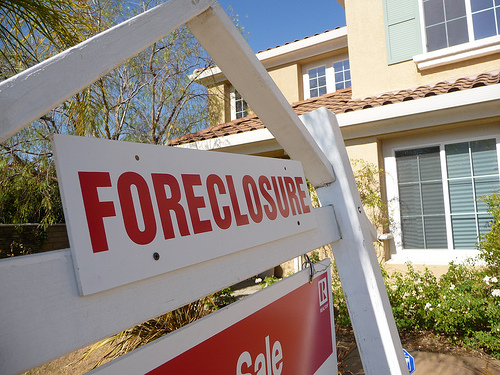
Flickr/respres
“Underwater”: that’s a watchword you’ve probably heard plenty throughout the Great Recession and the still dismal housing crisis. It’s people who owe more than than their house in worth, and who essentially have few economic reasons (setting aside their own beliefs and fears) to stay underwater when they could rent more cheaply in a comparable, and sometimes better, home. Well, in a sign that the housing crisis remains bleak, the number of people underwater continues to increase, up to 11.3 million by the close of 2009 compared to 10.7 in 2009’s third quarter, according to data from analyst FirstAmerican Core Logic. Another 2.3 million, the analysis says, are approaching negative equity but aren’t underwater yet. Nationwide, homeowners are a whopping $800 billion underwater.
The details are even more troubling in states hit hardest by the subprime meltdown. In Nevada, for instance, 70 percent of all mortgage properties are underwater; elsewhere, 51 percent are in Arizona, 48 percent in Florida, 39 percent in Michigan, and 35 percent in California. That so many millions of homeowners are underwater reverberates throughout the economy as well: As real estate expert Brent White of the University of Arizona points out in a recent paper, underwater homes result in decreased consumer spending, the lifeblood of the American economy; and decreased household mobility, which can lead to higher unemployment and less productivity. It’s a multi-pronged attack on our economy, dragging down not just the housing market but leading to people buying less and working less.
To blame for this pandemic of underwater homes are lenders, mortgage servicers, the government, and—yes—homeowners. Lenders and mortgage servicers, as myself and others have written, are generally loath to write down principal amounts on a homeowner’s loan in, say, a modification setting—they don’t want to take the losses, preferring to lower interest rates or extend the loan’s term. The government, too, has utterly failed to tackle the negative-equity problem: It’s flagship homeowner rescue, the taxpayer-funded Home Affordable Modification Program, doesn’t force mortgage servicers to reduce principal balances, which is at the heart of our housing dilemma, and offers cursory, modest solutions; the program also has a ceiling on how far underwater you can be to qualify—125 percent underwater—and if you’re in even worse shape than that, well, too bad.
And finally, homeowner are to blame for at least two reasons. First, because they purchased their home, as many did, during the housing bubble when prices were grossly inflated, the only direction their home’s value could go was down; the odds were high they’d be underwater to some degree. And second, a lot of homeowners, as White highlights in his paper, remain in their underwater homes when the smartest thing to do—economically, at least—is strategically default, walk away, and start anew. For many of those 11.3 million underwater homeowners, walking away makes perfect sense, you can rent for cheaper, and you can take that extra money from your previous mortgage payment and invest or save it. “The real mystery,” White writes, “is not—as media coverage has suggested—why large numbers of homeowners have been walking away, but why, given the percentage of underwater mortgages, more homeowners have not been.”
















